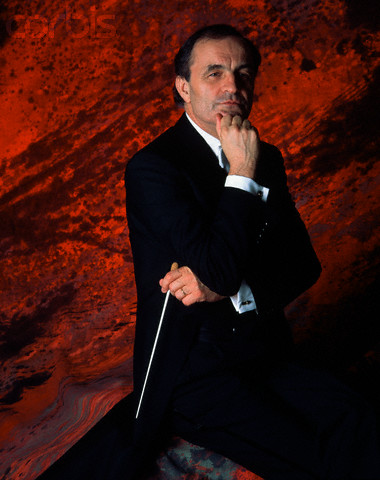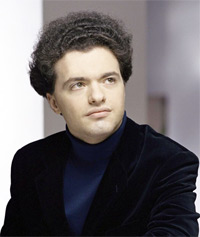Dutoit and CSO deliver a knockout “Petrushka”

Charles Dutoit may have been born in Switzerland but he’s rarely mistaken for a diplomat. Even in a public rehearsal last week with the Chicago Symphony, the conductor was brusque and intensely demanding, frequently stopping the orchestra to correct things or ask for more strongly projected playing from various sections.
His weeks may not be easy ones for the CSO musicians but they invariably pay off in inspirational performances. Such was the case again Thursday night at Orchestra Hall where Dutoit enlivened a program of 19th and 20th century warhorses, highlighted by a brilliant account of Stravinsky’s ballet, Petrushka.
The centerpiece of Stravinsky’s triumvirate of ballets written for Serge Diaghilev, the uber-Russian tale of the lonely puppet Petrushka, his sad life and sadder demise is usually performed in the revised 1947 version, which significantly scales down the orchestral forces.
Dutoit is giving us the original 1911 score at these concerts, and, as one would expect from a master colorist like the Swiss conductor, he led an extraordinary performance that brought out all the enhanced hues and myriad brush-strokes of this kaleidoscopic music.
The hectic panoply of the opening Shrovetide Fair was manifest in all its fizzing exuberance and dingy squalor, as well as the pathos of Petrushka and the puppet’s helpless rage against the machine. Also notable was the score’s wry humor—as with the Moor’s bizarre little dance with the ballerina—and the unsettling darkness of the eerie coda with the ghost of Petrushka thumbing his nose at the magician.
Even by the CSO’s standard, this Petrushka was one of the orchestra’s finest performances of the season, with Dutoit leading an edgy and explosive reading that brought out all the variegated elements of this extraordinary score. From top to bottom, the entire ensemble was playing at their very peak but special kudos to the contributions of flutist Mathieu Dufour, trumpet Christopher Martin, clarinetist John Bruce Yeh and pianist Mary Sauer.
It’s fashionable to be a bit sniffy about Edvard Grieg’s Piano Concerto in A minor, a work that has long suffered from its popularity and overfamiliarity. (Debussy famously dismissed the Norwegian composer’s music as “pink bonbons filled with snow.”) Yet Grieg’s concerto is a terrific piece, richly melodic and blending a Northern lyricism with impassioned youthful fire.

One doesn’t associate Evgeny Kissin with this repertoire yet the celebrated Russian pianist’s relative sobriety and straightforward approach made for a surprisingly fresh and involving performance.
Kissin’s easy virtuosity—-heard last month in his Liszt recital on the same stage—handled all the complexities with an organic, understated bravura, the climactic first-movement cadenza segueing seamlessly from searching and ruminative to headlong virtuosity.
The Adagio was simply expressive yet coolly unsentimental in Kissin’s hands. And while the finale lacked nothing in lean, driven dynamism, even in the thundering octaves and crashing chords, Kissin refused to play to the galleries by inflating the music into Rachmaninoff dimensions, keeping a certain essential pastoral quality.
Apart from the cello section getting out of synch at times, Dutoit’s incisive and clear-eyed accompaniment was a fine foil for his soloist, making for a notably refined and simpatico partnership. Repeated ovations brought Kissin back out for a limpid encore of Grieg’s piano arrangement of his song, I love but thee.
Sibelius’ complete Karelia Suite opened the evening. Previously only the peppy Alla Marcia has been played by the CSO—and that last heard in 1959 with Sir Thomas Beecham conducting.
The music is in the tradition of light and stringy Scandinavian music, hovering near the salon without quite crossing the line. Dutoit led a refined and atmospheric rendering in this belated CSO premiere of the complete suite, evocative in the horn calls of the opening Intermezzo and bringing apt swagger to the Alla marcia without bombast.
Yet it was the central Ballade that was most striking. Led by concertmaster Robert Chen, the CSO strings delivered darkly burnished, beautifully blended playing for their guest conductor.
The program will be repeated 1:30 p.m. Friday and 8 p.m. Saturday. cso.org; 312-294-3000.
Posted in Uncategorized


Posted Mar 25, 2011 at 2:38 pm by Esther
Petrushka is a great piece and a great showpiece for all of the forces of the orchestra. It was definitely one of the highlights of the season so far. I would advise concert-goers unfamiliar with the ballet, however, to do a little pre-concert research, so that they can grasp the story through the music without resort to distracting study of the program during the performance.
The first half of the program, however, was so-so. I think there’s a reason we haven’t heard the CSO do the Karlia suite before. It’s insubstantial, perhaps best reserved for amateur ensembles or high school orchestras.
Kissin displayed plenty of virtuosity in the first and third movements of the Grieg, rendering the great cadenza with appropriate drama and the third movement with appropriate speed.
The second movement, on the other hand, sounded to me flat and ugly. Overfamiliar warhorse or not, if your performance of the adagio can be accurately described as “coolly unsentimental,” you’re doing it wrong.
What’s more, from where I was sitting, the orchestra sounded surprisingly shabby on it, with coordination and even intonation issues, and some sour notes, more than his share from the flute. Perhaps it will be cleaned up by tonight.